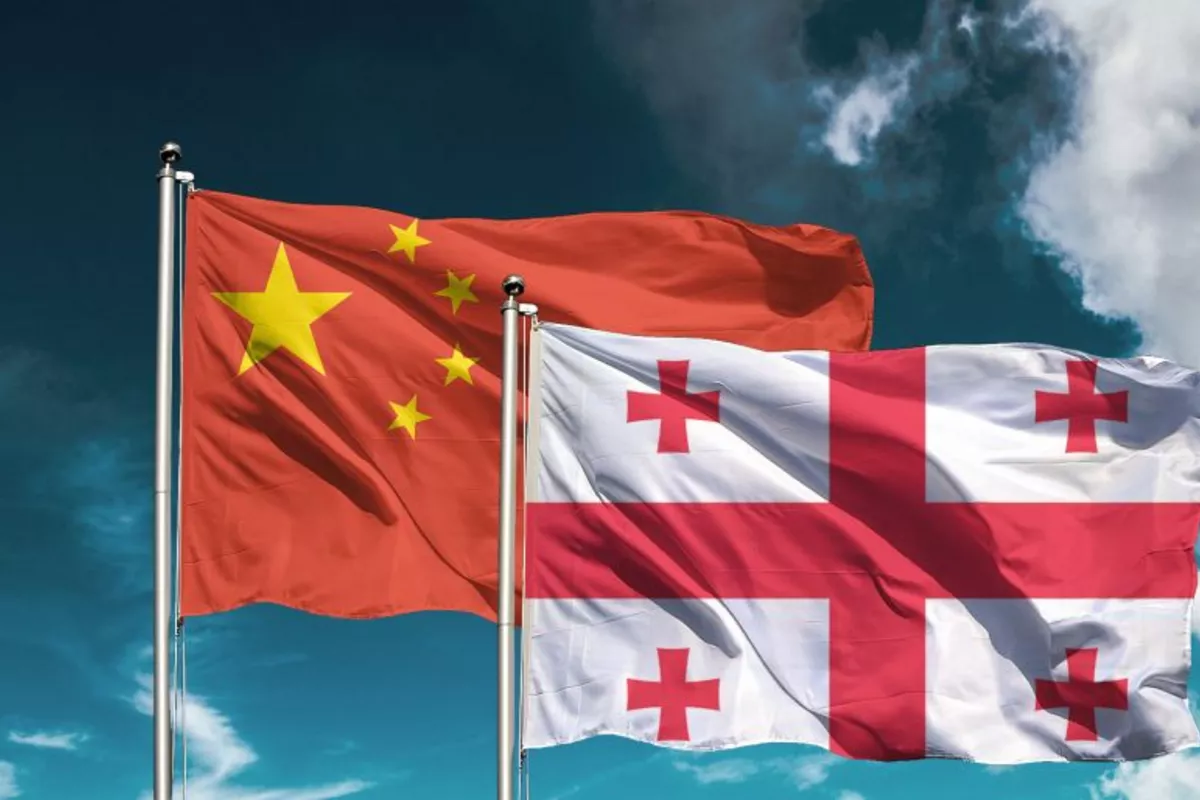
Photo credit: Civil Georgia
In late September, representatives from the self-declared Republic of Abkhazia's Chamber of Commerce signed a memorandum of understanding with a trade delegation from China's southern Guangdong Province.
The signing of this non-binding trade agreement marked a rare case of direct contact between a Chinese government-related entity and the de facto authorities of Russia-backed Abkhazia (reports of the signing were removed from all of the Abkhaz chamber’s communications platforms within 48 hours after their initial publication), The Caspian Post reports citing foreign media.
The event is indicative of the growing Chinese influence in the breakaway Georgian territory.
At the same time, Chinese officials continue to push for broader relations with the Georgian government. On the same late September day that Abkhaz trade representatives were showcasing regional wines at an exposition in Guangdong, the Chinese ambassador to Georgia in Tbilisi was reiterating Beijing’s interest in strengthening ties with Georgian Dream. In response, Prime Minister Irakli Kobakhidze described China as “an example for all civilized countries committed to progress, modernization, and the strengthening of global peace.” He went on to say the Georgian Dream government wanted to deepen ties with China “in all areas.”
The recent actions and statements underscore a geopolitical dichotomy for Beijing. While China insists on a “One China Policy” involving the mainland and Taiwan, Chinese officials seem content to pursue a divided Georgia track, as long as it provides economic benefits for Beijing and advances its Belt & Road vision.
Despite China’s non-recognition of Abkhazia’s self-proclaimed independence, top officials of Abkhazia’s de facto government, along with some outside experts, have frequently expressed optimism about China’s ability to foster the renegade region’s economic development. Nevertheless, direct economic ties between China and Abkhazia have thus far been limitedto occasional technical training programs and online sales of cut-price Chinese cosmetics and fast-fashion items by Sukhumi-based influencers.
Chinese influence is far more conspicuous on the other side of the line of contact in Tbilisi-governed territories. From Georgia’s East-West International Highway to the deep-water port in the Black Sea town of Anaklia, China is engaged in high-profile infrastructure projects.
But in the political sphere, China’s relations with Tbilisi and the de facto authorities in Sukhumi seem somewhat ambivalent. In late 2023, at the signing of Georgia’s strategic partnership agreement with China, Georgian Dream leaders proclaimed their fealty to the “One-China Principle” in support of Beijing’s territorial claims over Taiwan. (It is worth noting that Georgia is the only UN member state that prohibits the entry of holders of Taiwanese passports.)
But Tbilisi’s loyalty has so far largely gone unrequited.
Apparently reluctant to reciprocate, the Chinese government instead omitted references to Georgia’s two breakaway territories, Abkhazia and South Ossetia, from the strategic partnership agreement it signed with Georgia. Although China has not recognized the independence of these territories, Chinese diplomats rarely publicly endorse Georgia’s sovereignty over these regions the same way they endorse Azerbaijan’s sovereignty over the previously Armenian-controlled breakaway region of Nagorno-Karabakh.
During a 2024 interview with Georgia’s pro-government channel TV Imedi, Zhou Qian, the Chinese envoy in Tbilisi, dodged a question about China’s position on Abkhazia and South Ossetia by critiquing the West and its stance on Kosovo. China also abstained from a UN General Assembly vote on a resolution to support the return of Georgian IDPs to the two breakaway territories.
It is unlikely that the Abkhaz memo of understanding will lead to a surge in trade between the region and China. But the document reinforces the notion that Georgian Dream’s hopes that Beijing can become a dependable partner capable of offsetting the economic damage caused by Tbilisi’s geopolitical pivot away from the West are illusory.
Beijing’s actions and words indicate that the strategic partnership agreement it signed with Georgia is an unequal treaty.
Share on social media